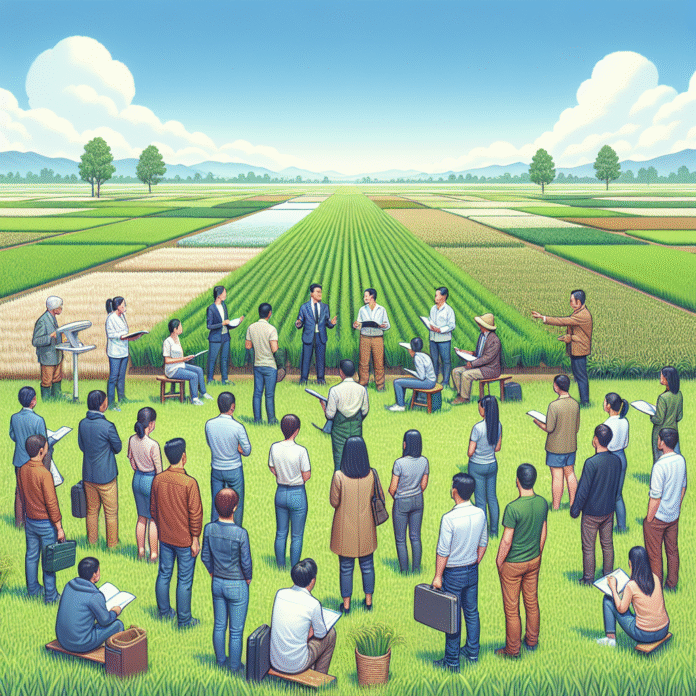IRRI Enhances Rice Varieties and Farmer Training on Climate-Smart Agriculture
IRRI Highlights Enhanced Rice Varieties and Climate-Smart Agriculture Training for Farmers
The International Rice Research Institute (IRRI) is making significant strides in promoting sustainable agricultural practices by showcasing improved rice varieties and offering training programs focused on climate-smart agriculture. These initiatives are designed to help farmers adapt to the challenges posed by climate change while increasing their productivity and ensuring food security.
Advancements in Rice Varieties
IRRI’s development of high-yielding and resilient rice varieties is a cornerstone of its mission to enhance food security. These improved varieties are engineered to withstand adverse conditions such as drought, flooding, and salinity. By providing farmers with seeds that are better suited to their local environments, IRRI aims to boost crop resilience and reduce the reliance on chemical fertilizers and pesticides.
Climate-Smart Agriculture Training
In addition to introducing new rice varieties, IRRI is actively training farmers in climate-smart agriculture techniques. These methods focus on sustainable farming practices that improve productivity while minimizing environmental impact. Training sessions cover a range of topics, including water management, soil health, integrated pest management, and agroforestry. By equipping farmers with the knowledge and tools they need, IRRI is fostering a generation of agriculturalists who are better prepared to tackle the effects of climate change.
Impact on Food Security and Livelihoods
The combination of improved rice varieties and climate-smart practices is crucial for enhancing food security, particularly in regions vulnerable to climate change. By increasing resilience and productivity, these initiatives not only help farmers secure their livelihoods but also contribute to broader efforts to combat hunger and malnutrition. As global populations continue to rise, the need for innovative solutions in rice production becomes increasingly urgent.
Collaboration and Future Prospects
IRRI collaborates with various stakeholders, including governments, NGOs, and local communities, to implement these programs effectively. By fostering partnerships and sharing knowledge, IRRI aims to create a sustainable agricultural ecosystem that benefits farmers and consumers alike. Looking ahead, the institute is committed to continually refining its research and outreach efforts to meet the evolving challenges of climate change and ensure a stable food supply for future generations.


